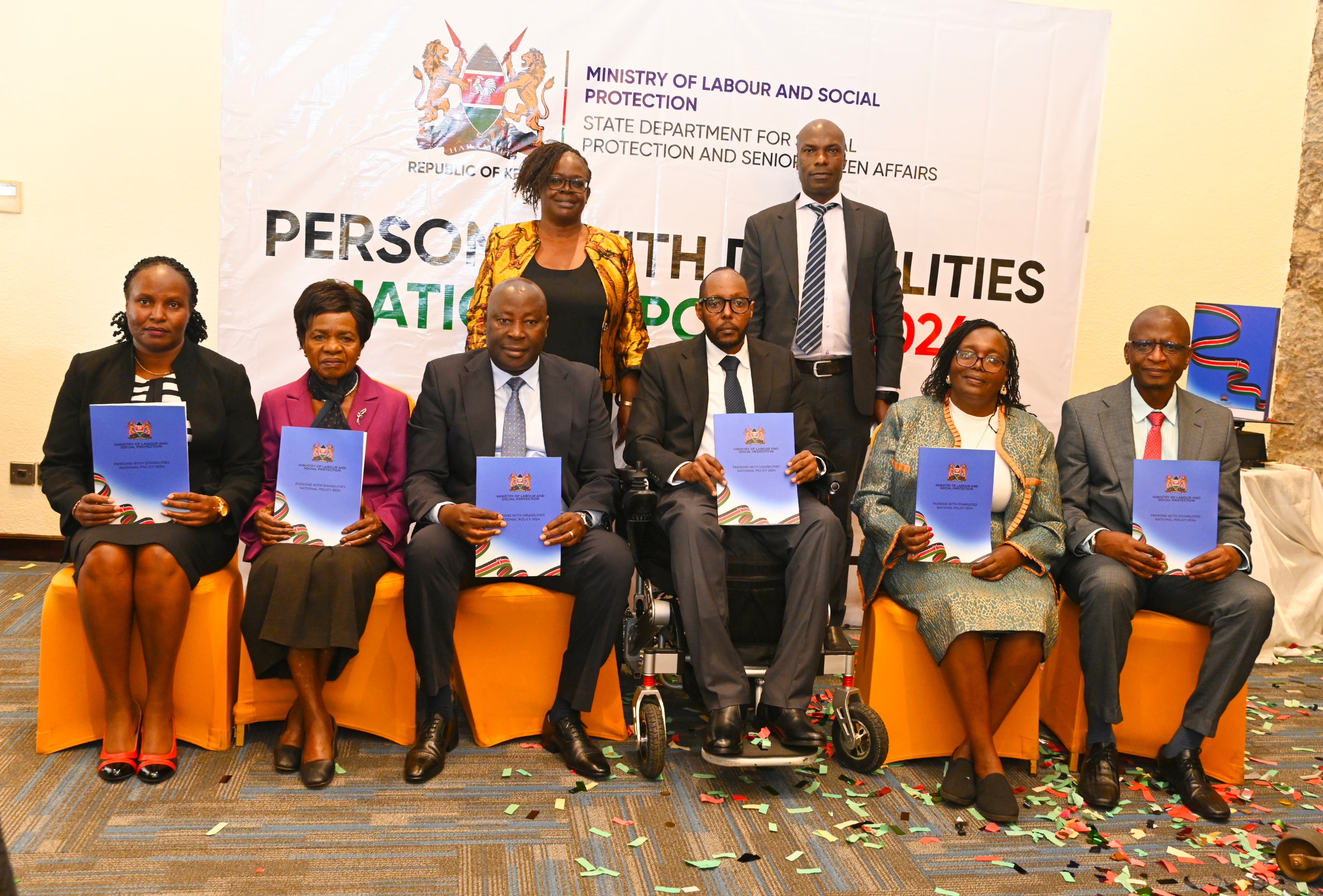

In a major stride toward social inclusion and equality, Kenya has officially launched the Persons with Disabilities National Policy, 2024.
The policy reaffirms the government’s commitment to building an inclusive society where no one is left behind.
The landmark policy was unveiled at a high-level event held at Sarova Panafric Hotel in Nairobi, presided over by Joseph Motari, Principal Secretary in the State Department for Social Protection and Senior Citizen Affairs.
“This is not just a document — it is a framework for transformation,” Motari said, emphasising the policy’s role as a national commitment to equity, dignity, and opportunity for persons with disabilities.
Motari highlighted significant progress already made, including the expansion of cash transfer programmes, improvements in vocational training, and increased distribution of assistive devices.
He also noted the upcoming Persons with Disabilities Act, 2025, which replaces the 2003 law and introduces stronger legal safeguards around accessibility, representation, and inclusive infrastructure.
A key strength of the policy is its focus on intersectional inequalities, particularly for women, children, youth, and older persons with disabilities.
It promotes gender-sensitive initiatives such as Community-Based Care Support Systems, aimed at addressing the specific challenges faced by vulnerable groups.
Speaking at the same event, Douglas Kotut from the Ministry of Health reaffirmed the ministry’s steadfast support for disability inclusion, pointing to the 2022 rollout of the Disability Assessment and Categorisation Guidelines as a transformative milestone.
“Standardising the registration process has helped eliminate long-standing inconsistencies and made assessments fairer and more accurate,” Kotut said.
He further noted that decentralising disability assessments to county levels has significantly improved service delivery, cutting down delays and bringing services closer to communities.
The Ministry of Health is also finalising its own Disability Policy and Implementation Guidelines, which will support inclusive planning, budgeting, and the expansion of rehabilitation services.
The acting Executive Director of the National Council for Persons with Disabilities (NCPWD) Eva Njoroge pledged the Council’s full commitment to leading implementation efforts.
She called on all sectors — public and private — to collaborate in advancing inclusive education, employment, assistive technology, and access to justice.
The Policy, developed in alignment with the UN Convention on the Rights of Persons with Disabilities (UNCRPD), Kenya’s 2010 Constitution, and the new Disability Act (2025), outlines 26 thematic areas for action, offering a roadmap for mainstreaming disability across all levels of governance and service delivery.
A key component of the Policy is a renewed focus on data and evidence-based planning.
The government plans to conduct a National Survey on Persons
with Disabilities and a dedicated Disability Census in collaboration with the
Kenya National Bureau of Statistics (KNBS), aimed at ensuring equitable
allocation of resources and effective policy implementation.
Motari issued a rallying call to ministries, counties, and development partners:
“Let us move forward with urgency, compassion, and determination. Together, we can build a Kenya where every person — regardless of their ability — feels seen, heard, valued, and supported.”















![[PHOTOS] Betty Bayo laid to rest in Kiambu](/_next/image?url=https%3A%2F%2Fcdn.radioafrica.digital%2Fimage%2F2025%2F11%2F3b166e2e-d964-4503-8096-6b954dee1bd0.jpg&w=3840&q=100)


